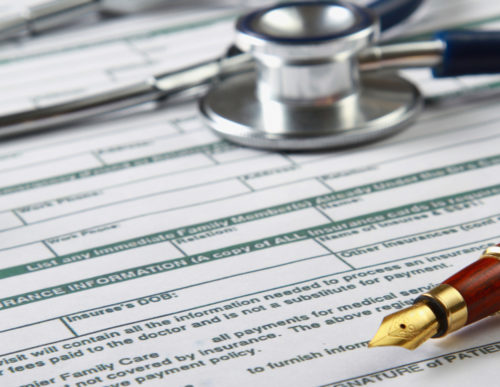A survey by the commonwealth fund shows that 79 million Americans are struggling with medical debt. This may not come as a surprise, as insurance prices are skyrocketing and the cost of even routine services is well beyond the means of the average American worker.
However, as scary as the reality of medical debt is, it doesn’t stop people from getting sick or injured, and no one should have to feel punished for needing medical care. If you’re suffering from medical debt, here’s what you need to know to move forward
Table of Contents
What Happens to Hospital Bills When They’re Overdue
To go into medical debt, you first have to have hospital bills you can’t pay. By itself, debt isn’t necessarily a bad thing. If you’re able to pay down your debt consistently, having revolving debt can actually boost your credit score. Unfortunately, due to the sheer size of many hospital bills, medical debt isn’t always easy to pay off.
Unlike other forms of debt, such as your mortgage or credit card, medical debt is often unplanned — a poorly timed accident, an unexpected ambulance ride, or a surprise bout of illness can land you in the hospital with a huge bill looming over your head.
Paying your hospital bills might be no problem if you have good health insurance or an emergency fund. But if you’re uninsured, or your insurance or savings simply isn’t enough, then you might need to explore other means for paying down your hospital debt.
What Happens When Your Hospital Debt Goes to Collections
If you aren’t able to pay your hospital bills in a timely manner, then the hospital or other medical provider will probably send your debt to a collections agency. At this point, you may be tempted to ignore the collections agency, but this is actually one of the worst things you can do. Debt collectors are remarkably persistent, and simply ignoring their calls and letters will not make your debt go away.
When your hospital bill goes to a collections agency, a derogatory mark appears on your credit report, which lowers your credit score. When you don’t pay your debt, it can get split up and passed around to multiple collections agencies, and each new agency is a new demerit on your credit report. These negative marks can quickly rack up and you may find yourself totally unable to open a new credit card, refinance your mortgage, or take out personal loans.
If you continue to leave your medical debt unpaid after multiple warnings from a collections agency, you can actually be sued over your debt, giving the debt owners the options of garnishing your wages — taking money from your paychecks to pay your debt.
Ways to Pay Your Medical Bills
As we said earlier, paying off your medical debt can be especially difficult because the cost of care is so high, and these charges can come up unexpectedly. If you don’t have enough in your emergency fund to cover a surprise hospital bill, here are some options to help you resolve your medical debt.
Negotiate a Payment Plan
If you have a huge hospital bill and you aren’t insured, or your insurance isn’t covering as much as you’d like, it’s unlikely that you’ll be able to pay the whole thing off in one lump sum. As quickly as you can, contact your healthcare provider’s billing department and communicate your financial situation to them.
Remember, all they want is payment for services — they don’t get anything extra from sending you to collections. By negotiating a payment plan, you can reach a reasonable monthly payment that you can manage and that will satisfy the hospital’s accountants without having to go to collections.
Double Check Everything With Your Insurance
If you’re not happy with how your insurance company covered — or didn’t cover — your medical care, you don’t have to give them the final word. When you receive your explanation of benefits — this is not your bill — go through it item by item to ensure that the services your insurance is accounting for are services that you actually received. If you see items that you don’t recognize, it might be time to dispute your hospital bill.
Settle Your Medical Debt
If your medical debt has gone unpaid for quite a while and it’s unlikely that you’ll have the means to repay it in full anytime soon, you can try negotiating with the hospital to reach a settlement for your medical bills. This is different from negotiating a payment plan, as this discussion typically comes long after your debt is accrued, and is about a lump sum you can pay to settle the debt.
Keep in mind that what the hospital wants most is for you to pay your debt, so they might be willing to accept a portion of the total bill if it’s unlikely that they’ll ever collect the full amount.
Apply for Medical Debt Forgiveness
There are charities out there that recognize the high cost of medical services compared to what the average family makes, and seek to help those in debt pay off their bills. These charities will actually buy your debt from collections agencies and settle it on your behalf. Different charities serve different populations, so make sure you check your eligibility before you apply.
Even though it can feel like it, medical debt doesn’t have to be the end of the world. Try and take care of your hospital bills sooner rather than later, and work with your healthcare providers to find ways of repaying that work for all parties involved. By communicating early and often, you can avoid having your medical debt sent to a collections agency, and recover from medical debt.
Image Source: https://depositphotos.com/





